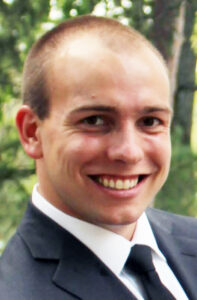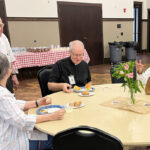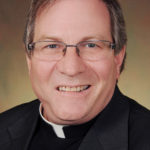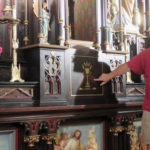(Part two of six)
Tumultuous. This seems to be an apt description of recent political news. One day, a poignant and prophetic 16-year-old, Greta Thunberg, having traversed the Atlantic by way of an emission-free boat, upbraided the international community for our inattentiveness to the earth. The next day it was announced that the U.S. House of Representatives will move forward with an impeachment inquiry against the President.
The problems of the world often feel outside the sphere of our personal influence. A common response is to feel disenfranchised from the political order. Simultaneously, the approval rating of Congress has been hovering between 17-19% and trust in the federal government continues on its nearly 20-year downward slide. Our present reality makes it more important to be attentive to happenings in the political realm. From the perspective of our Catholic faith, we are obliged to be engaged in “the very noble art of politics” (“Gaudium et Spes” No. 75), even if it doesn’t feel much like a “noble art.” This is the case for both historical and theological reasons.

With the history of our tradition in mind, the lives of the saints witness to the importance of bringing one’s faith to bear on one’s politics. Figures such as Saints Lawrence, Ambrose of Milan, Catherine of Siena, Thomas More and Óscar Romero all serve as models from our long history, with figures such as Dorothy Day being a more recent model from the U.S.
Reflecting on the lives of these and others should not be a process of mere admiration. Saints should not be relics in the museum of the past. Rather, we must ask how their lives speak prophetically to us today. Jesus, too, did not shy away from the political consequences of his ministry. After all, Pilate seems to have executed Jesus as a religio-political agitator. Our history challenges us to engage in an ongoing and dynamic discernment which leads to an ever richer Christian life in the public square.
Turning to the theological, it is helpful to consider the Bible and the Incarnation. The Bible, as the story of God’s relationship with God’s people, is a story often intertwined with politics. The prophet-king relationship is just one example of this. The kings, who served at God’s behest, often failed in their task and needed correction. The role of the prophet was to disrupt the complacency and corruption of the king and, in so doing, to speak truth to power in the interest of bringing God’s healing upon the people Israel.
In the Incarnation “the Word became flesh and dwelt among us” (John 1:14). God became incarnate in matter, thereby sanctifying it. The earth and all of creation was revealed as holy. Everything, therefore, that impacts the human person must be considered under the rubric of theology. “Gaudium et Spes” No. 1 conveys this beautifully: “The joys and the hopes, the grief and anguish of the people of our time, especially of those who are poor or afflicted, are the joys and hopes, the grief and anguish of the followers of Christ as well.” Nothing that touches the human person can be beyond our interest.
The reasons articulated thus far are applicable to all Christians. A distinctively Catholic vision of political theology must include reconciliation and the Eucharist. Both sacraments bring healing to interpersonal brokenness, build communion out of the fractures of individualism and demand justice in the place of partisanship. If we don’t live out reconciliation and Eucharist in our daily lives, then a uniquely Catholic contribution to the body politic is found wanting.
The inverse is also true. If we abdicate our political responsibilities then we are abdicating our faith. We must integrate these disciplines, not so they distort one another as so often happens, but in order to discern how we can do both in a complementary way. Doing this well requires teasing out areas of deepest commonality between the political and theological. This will be the topic of the next column.
(Editor’s note: Patrick Schmadeke is a graduate of St. Ambrose University (‘13) and a student in the Master of Divinity program at the University of Notre Dame. His column offers reflections on his coursework, engaging with the richness of the Catholic Tradition and its relevance to the world today.)











